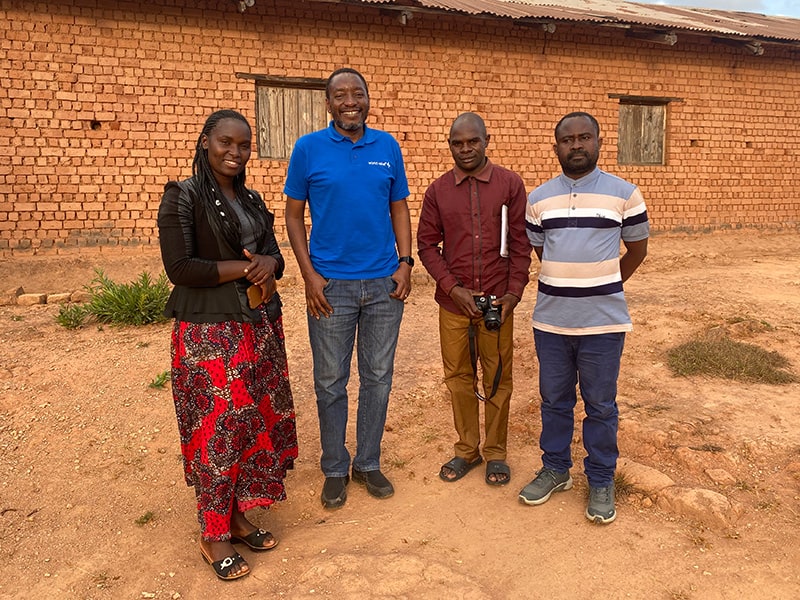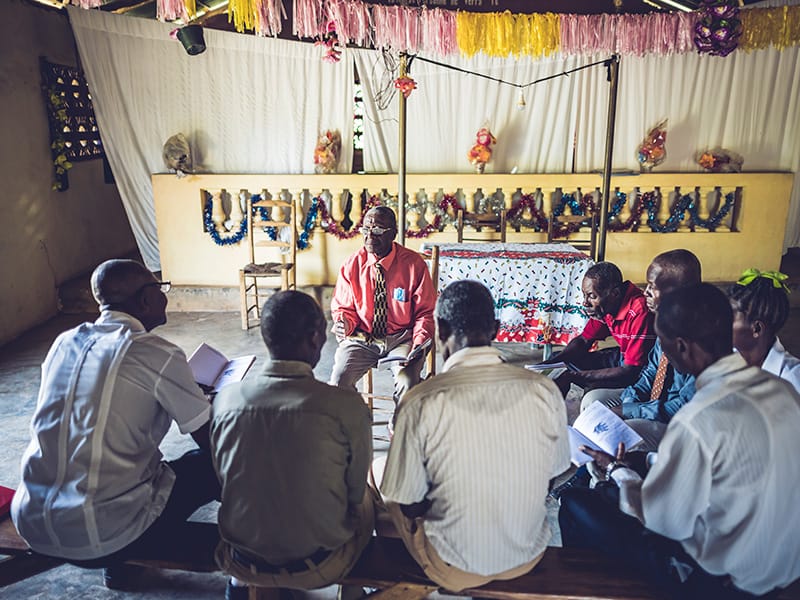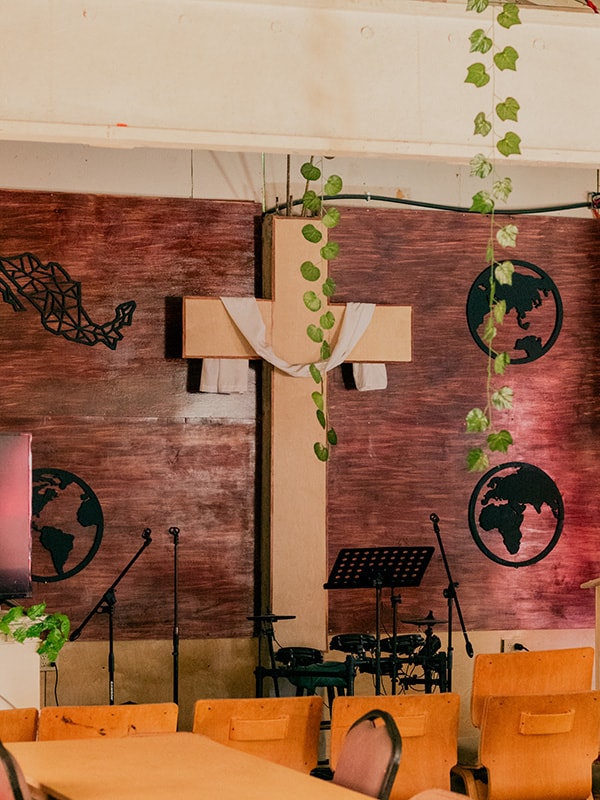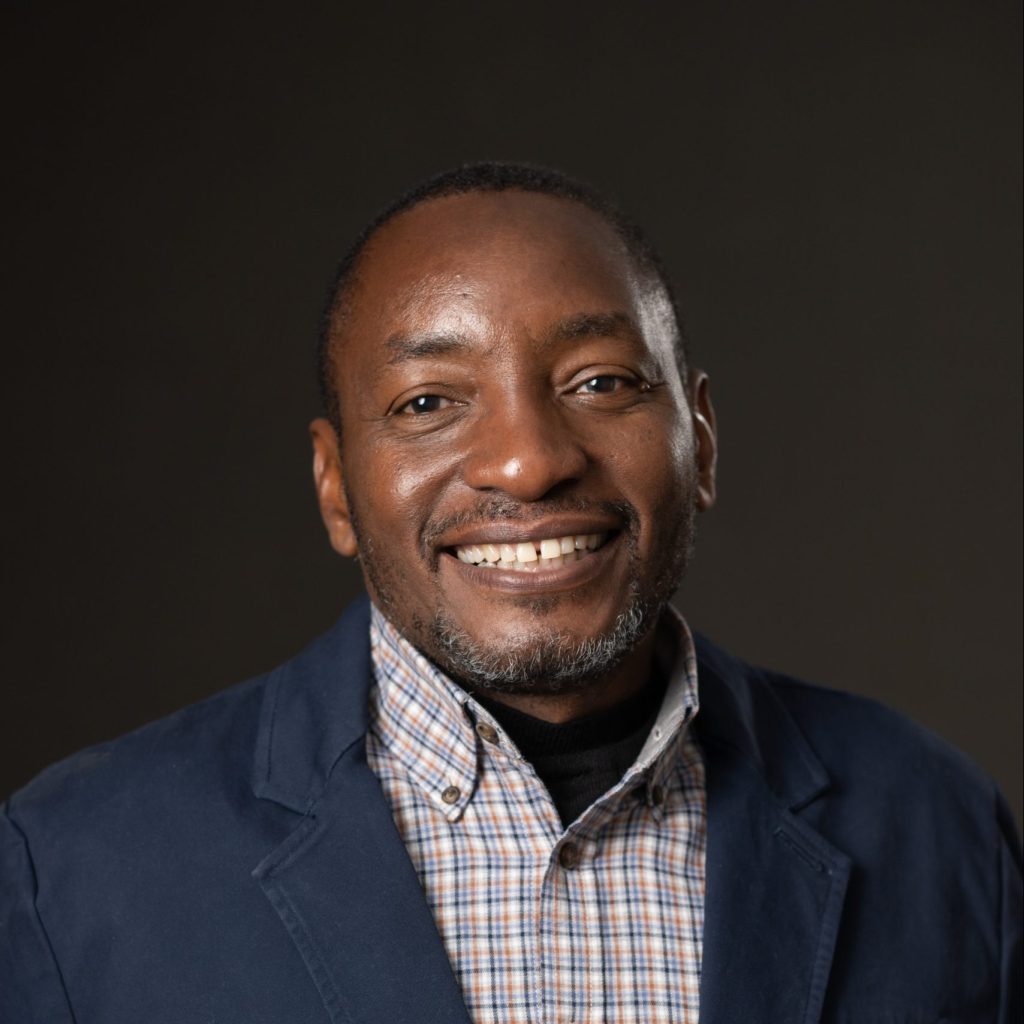“Can the church still make a difference?” If you’ve asked yourself this question over the last few years, you’re not alone. At a time when many are losing trust in the local church, it’s easy to wonder whether the church can still be a relevant agent for lasting change.
Today, Dennis Mwangwela, Director of Integral Mission for International Programs, shares a bit of World Relief history, tells us why he still believes the church can make a difference and casts a hopeful vision for how we can move forward in humility to serve our communities in both word and deed.
In the early days of Jesus’ ministry, he read a passage in the book of Isaiah, saying:
“The Spirit of the Lord is on me,
– Isaiah 61
because he has anointed me
to proclaim good news to the poor.
He has sent me to proclaim freedom for the prisoners
and recovery of sight for the blind,
to set the oppressed free…”
By proclaiming this about himself, Jesus set the context for the church’s calling to serve the most vulnerable, and in doing so, he laid the foundation for his upside down kingdom — where the first are last and the last are first, and everyone experiences physical and spiritual transformation.
Notably, Jesus didn’t separate the physical and spiritual needs of those he came to serve. Instead, he saw them as whole, integrated people in need of whole, integrated care, and he calls all believers to enter into his ongoing work of healing and restoration in order to build a more just world today.
A Vision for Holistic Ministry
This integrated vision of ministry has long been at the heart of World Relief’s work. But 20 years ago, when I first began working at World Relief, there was no consistent model for this type of ministry. We worked with churches and we served the vulnerable, but every office and team had their own methods for how this work was carried out.

Over time, many of us in leadership began to dream about a harmonized model for holistic service — one that extended not just to the people we served, but engaged staff, donors and volunteers in the transformational journey. A model that created one church moving together to serve others in word and deed.
Twenty years later, I can attest that World Relief is finally becoming that organization we once dreamed about. Our staff and volunteers, church partners and program participants across offices and departments are mobilizing around a method of ministry that transforms everyone in heart, mind, body and soul. At World Relief, we call this approach, based on the example of Jesus, Integral Mission.
Ordinary People Living Like Jesus
For us, Integral Mission simply means ordinary people in community as the church seeing people as Jesus saw them and working towards the same objectives and outcomes as Jesus did.
In short, it’s our common commitment to both the Great Commission to make disciples and the Great Commandment to love others through action.

Like milk that’s been mixed with coffee, so too are the physical and spiritual natures of people — once combined, they cannot be separated. As such, Jesus’ redemptive work encompasses the whole, and our response to brokenness must also be whole.
Perhaps one of the reasons the church has lost its flavor in many parts of the world is because we’ve forgotten this mandate. We’ve separated the word of the gospel from the actions of justice and good works, and our task is to integrate them again.
A Church that Makes a Difference
Today, our church partners around the world are witnessing transformation as they practice Integral Mission in their communities.
In Haiti, churches are providing for needs in the absence of government infrastructure. In Malawi, communities have become more vibrant as the church creates inclusive communities for those with disabilities. And in Rwanda the church has become a shining example and trusted partner as pastors and faith communities embody an integrated faith.
I recently had the privilege of hearing a Rwandan pastor’s testimony about how his church embraced this kind of holistic response to the needs of their neighbors.
The church had become aware that two young, refugee men from DR Congo didn’t have a suitable house to live in. As a church, they decided to mobilize their resources and time to build a good home for them. When the home was ready, they called these young men and handed over the keys saying, “This is your house!”
The young men were puzzled and asked why the church was doing this, to which the pastor responded, “We’re doing this because Jesus Christ would have done this if he was still here physically.”
The young men replied, “If this is the Jesus that is preached in your church, then we want this Jesus.”
You see, when churches move from solely proclaiming a message of salvation to both proclaiming and demonstrating the good news of the gospel by caring for their neighbors in need, lasting spiritual and physical change happens.
Our Shared Calling
These stories remind us that the church can make a difference. In spite of her challenges and imperfections, the church is still God’s chosen instrument for bringing transformation and healing to our broken world.
Just as Jesus drew close to us as Emmanuel, “God with us,” the church is called to draw close to those who are suffering, marginalized, oppressed and forgotten.
Whenever we walk with communities towards spiritual and economic freedom, whenever we help others find emotional and physical healing from illness and past traumas and whenever we proclaim the good news of the gospel, we are following the framework Jesus presented for whole, integrated transformation.

And even as we become instruments of his transformative work in the world around us, we are transformed ourselves. Because bringing holistic, lasting change to God’s creation isn’t just what we do at World Relief — it’s who we are all called to be as Christians.
This kind of work isn’t a single program or a single team. It can’t even be contained in catchphrases like Integral Mission.
It’s all of us, allowing Jesus to draw near to us and allowing ourselves to draw near to one another so we can experience the fullness of his transformation and healing.
_____________________________________________________________________
So what do you think? Can the church really make a difference?
Read 7 reasons why we think the church can change the world.

Dennis Mwangwela serves as Director of Integral Mission for World Relief’s International Programs. With over 20 years of experience in international development, he provides technical support to World Relief’s country offices, focusing on building staff capacity to mobilize and engage local churches and communities so that they can address diverse vulnerabilities in their communities. Dennis is passionate about church and community-led transformation through belief and mindset changes. Born and raised in Malawi, Dennis has been married to his wife, Agnes, for 26 years, and they have four children.


